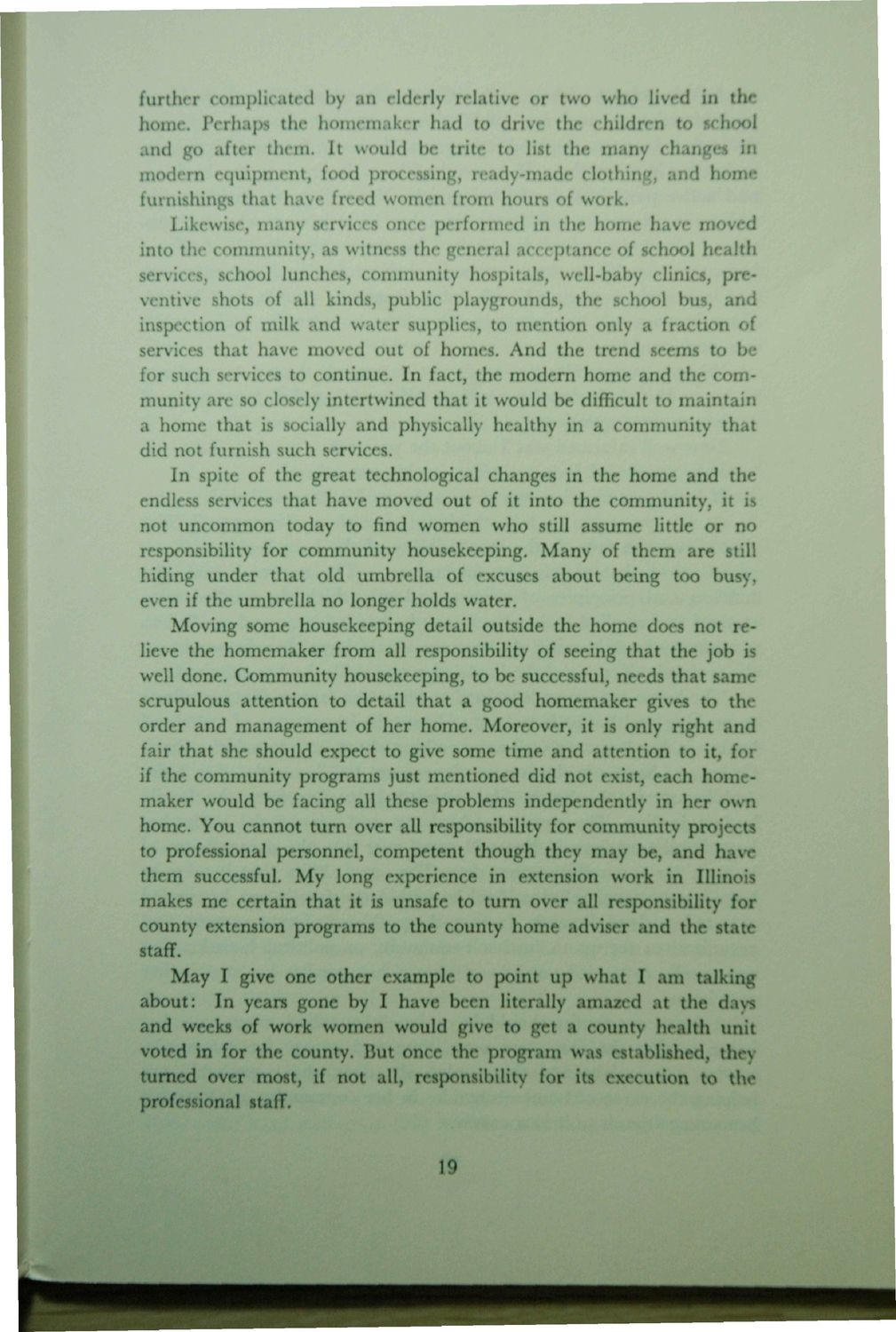| |
| |
Caption: Dedication - Home Economics - Challenge of Home Economics
This is a reduced-resolution page image for fast online browsing.

EXTRACTED TEXT FROM PAGE:
further complicated by an elderly relative or two who lived in the home. Perhaps the homemaker had to drive the children to school and go after them. It would be trite to list the many changes in modem equipment, food processing, ready-made clothing, and home furnishings that have freed women from hours of work. Likewise, many services once performed in the home have moved into the community, as witness the general acceptance of school health services, school lunches, community hospitals, well-baby clinics, preventive shots of all kinds, public playgrounds, the school bus, and inspection of milk and water supplies, to mention only a fraction of services that have moved out of homes. And the trend seems to be for such services to continue. In fact, the modern home and the community are so closely intertwined that it would be difficult to maintain a home that is socially and physically healthy in a community that did not furnish such services. In spite of the great technological changes in the home and the endless services that have moved out of it into the community, it is not uncommon today to find women who still assume little or no responsibility for community housekeeping. Many of them are still hiding under that old umbrella of excuses about being too busy, even if the umbrella no longer holds water. Moving some housekeeping detail outside the home docs not relieve the homemaker from all responsibility of seeing that the job is well done. Community housekeeping, to be successful, needs that same scrupulous attention to detail that a good homemaker gives to the order and management of her home. Moreover, it is only right and fair that she should expect to give some time and attention to it, for if the community programs just mentioned did not exist, each homemaker would be facing all these problems independently in her own home. You cannot turn over all responsibility for community projects to professional personnel, competent though they may be, and have them successful. My long experience in extension work in Illinois makes me certain that it is unsafe to turn over all responsibility for county extension programs to the county home adviser and the state staff. May I give one other example to point up what I am talking about: In years gone by I have been literally amazed at the days and weeks of work women would give to get a county health unit voted in for the county. But once the program was established, they turned over most, if not all, responsibility for its execution to the professional staff. 19
| |